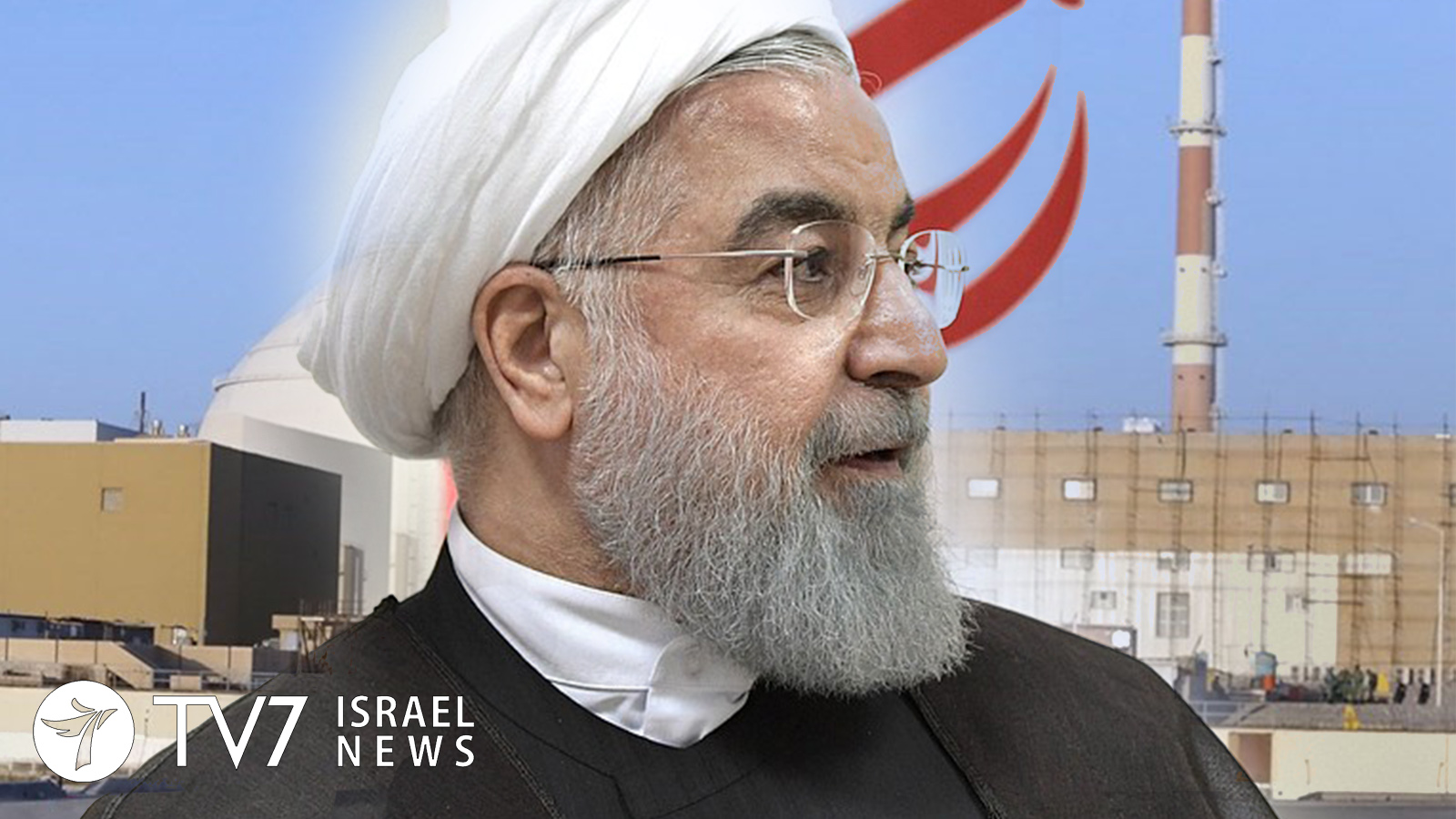Iranian President Hassan Rouhani reiterated his country’s warning to the European parties of the 2015 multilateral nuclear agreement, stating that unless the Islamic Republic’s 60-day deadline is met – regardless of ongoing negotiations with France, Britain and German – the Ayatollah regime will give a green light to commence its previously-declared third retaliatory phase of suspending its obligations under the Joint Comprehensive Plan of Action. “We will continue to negotiate, but if at the end of the 60-day deadline, negotiations do not reach a conclusion, then we will decisively commence the third phase. Again, after the third phase, we will give another 60-day deadline, so that we would have time for more talks and reach an appropriate solution that is reasonable, correct, and balanced. Our slogan is ‘commitment for commitment’,” Rouhani said.
According to the spokesman of Iran’s Atomic Energy Organization, the expected suspension of Iran’s nuclear commitments would effectively mean ‘surpassing a 130-ton limit on heavy water production, as well as a 300-kilogram cap of its enriched uranium stockpile.’
During his weekly cabinet meeting, President Rouhani underscored that the Islamic Republic would be willing to revisit its decision only if “all conditions are appropriate,” while further underscoring that cooperation and negotiations with other parties are only possible if Tehran’s objectives are attainable. The Iranian President said: “To secure safety of the Persian Gulf, the Strait of Hormuz, and the Sea of Oman, we do not need foreign forces and foreign powers.”
With regard to growing tensions surrounding the strategic Strait of Hormuz, President Rouhani rejected efforts by Western powers to establish separate naval coalitions for the purpose of assuring freedom of maritime navigation. He said: “To secure safety of the Persian Gulf, the Strait of Hormuz, and the Sea of Oman, we do not need foreign forces and foreign powers.”
The Iranian leader also responded to last week’s reported comment by Israeli Foreign Minister Yisrael Katz, who underscored, in a meeting of the Israeli parliament’s temporary Foreign Affairs and Defense committee, that it would be in Jerusalem’s interest to offer additional assistance to the U.S.-led coalition in securing the Persian Gulf. Rouhani ridiculed this statement by insinuating an unspecified threat, by saying: “the Israelis had better ensure the security of where they are.”
It is important to note that while Israel actively assists the United States and other Western and regional allies in the field of intelligence, it has yet to officially confirm any direct involvement in the emerging U.S.-led coalition.
